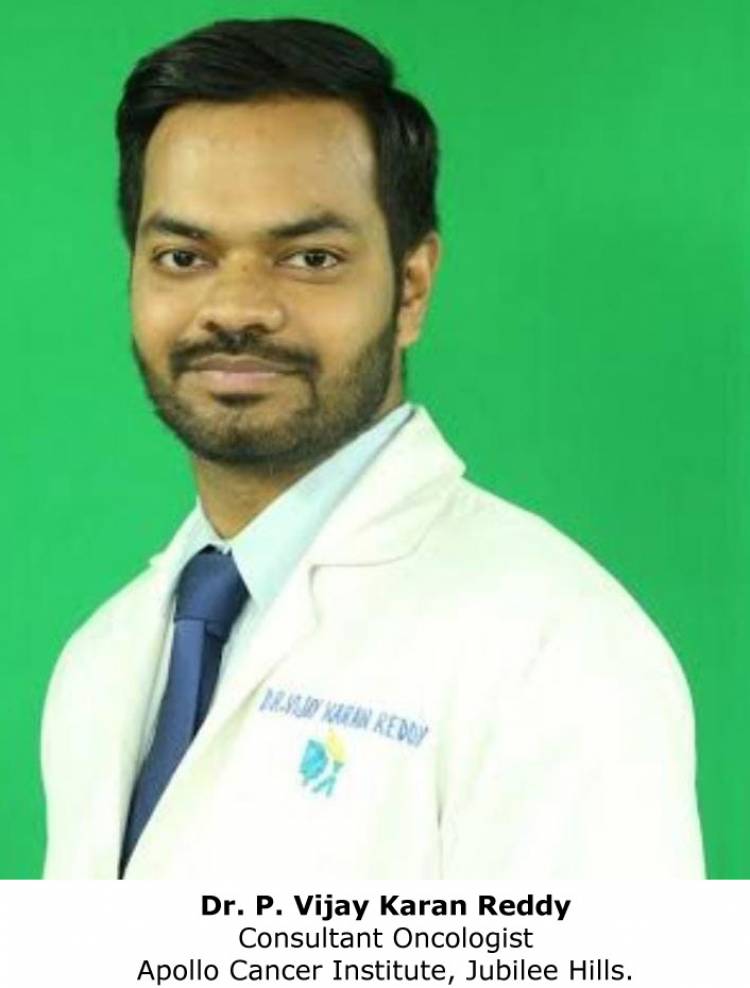April - Head & Neck Cancer Awareness month HEAD AND NECK CANCERS AN UNDERRATED YET A CRUCIAL THREAT

April - Head & Neck Cancer Awareness month *
HEAD AND NECK CANCERS
AN UNDERRATED YET A CRUCIAL THREAT
Head and Neck Cancers are the second most common cancer in India with more than 100,000 new cases each year and more than 50,000 deaths. This highlights the need for more and more awareness of this disease in order to detect it early and prevent it where possible. This month being dedicated to head and neck cancer awareness, gives us the opportunity to do exactly that.
Head and neck cancers essentially include cancers arising from either the oral cavity, oropharynx (soft palate, base of tongue, tonsils), larynx (voice box), the pharynx, nasopharynx (area behind the nose) or the salivary glands (rare).
Risk factors
The leading causes of this disease include Tobacco consumption via smoking cigarettes, cigar or pipe and more importantly, chewing tobacco (pan, gutkha) especially in India. While not as dangerous as Tobacco, alcohol is another major contributor to the risk and consumption of both of them together exponentially increases one’s exposure to the risks. Apart from these, infection with HPV virus (type 16) which more commonly causes cancers of the oral cavity and oropharynx and EBV virus which causes cancer of the nasopharynx are the other risk factors along with poor nutrition (diet low in Vit A and B), environmental inhalants and previous exposure to radiation. Gender and age play an important role as men are 2 or 3 times more likely to get Head and Neck Cancer as compared to women, and people above the age of 40 are more vulnerable to it.
Symptoms
The most common symptoms of Head and Neck cancers are ulcers in the mouth, lump or swelling in the neck, persistent sore throat, swallowing difficulty, hoarseness or change in voice, ear pain or hearing loss. Other symptoms may include loosening of teeth, foul mouth odor, jaw pain and unexplained weight loss.
Prevention and Screening
Head and Neck Cancers can be prevented by avoiding risk factors and increasing protective factors. Stopping and abstaining from ALL TOBACCO related products is essential and most important factor for the prevention of this disease. HPV vaccine which protects both men and women from HPV infection and potentially prevents more than 90 percent of HPV positive cancers, is now recommended. Avoiding environmental and occupational exposure to toxic inhalants by wearing protective masks, using air-filtration systems in companies to minimize employee’s risks to toxic fumes and dust.
Treatment Options
Head and neck cancers are curable 70-80% of the times and this percentage reaches 90 and above when detected early. The treatment depends on the location and stage of the disease and consists of a combination of all the three treatment modalities in oncology i.e. Surgery, Radiation therapy and Chemotherapy. You as a patient might receive either of these treatments or all of them.
Psycho social supportCancer” is a very dreadful word for anyone to hear especially when its someone in their own family. It affects not only the patient but also everyone around them. As much as the disease itself has a huge psychological bearing on the patient there is also the fear and anxiety of going through the treatment. The treatment is tough especially for head and neck cancer patients and it is at this time that they need all the support they can get people around them to help them fight this through. Today, with the latest of technologies and high standards of patient care, we as your oncologists will be there with you every step of the way and help you conquer cancer.
The incidence of Head and neck cancers is ever increasing and in a developing country like India where there is rampant use of tobacco and its related products, awareness of the disease including its risk factors and its prevention is of paramount importance
“THE BEST WAY TO GET STARTED IS TO QUIT TALKING AND BEGIN DOING!
STOP SMOKING TODAY!
Dr. P. Vijay Karan Reddy
Consultant Oncologist,
Apollo Cancer Institute,
Jubilee Hills, Hyderabad !” .




















